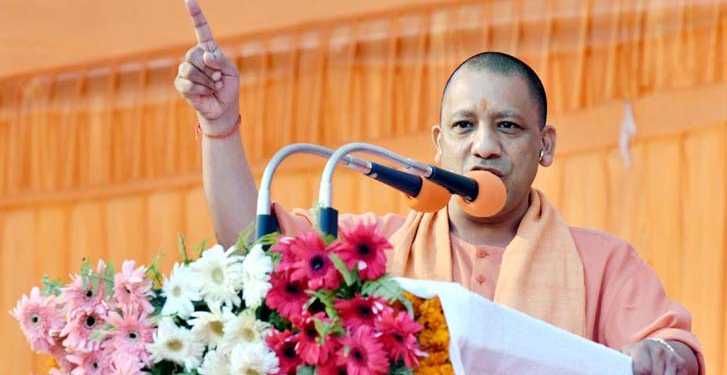When Yogi Adityanath was appointed the chief minister of Uttar Pradesh in March last year, the usual suspects cast aspersions on his abilities as an administrator. Almost one year down the line, the saffron-clad monk has emerged as a go-getting chief minister, drawing praise from every corner of the country.
In the last few months, we have seen Yogi Adityanath in the avatar of tough task master on a mission to clean up the state. Yesterday, we saw him in the avatar of a CEO.
The Uttar Pradesh Investors’ Summit was inaugurated by prime minister Modi Yesterday. The state left no stone unturned to make the summit a success. The doyens of corporate India were present, as were 18 union ministers. The government even managed to get Finland, Holland, Japan, Czech Republic, Thailand, Slovakia and Mauritius as partners of the event.
Ever since the Yogi Adityanath government took it upon itself to clean up the state, investors have been eyeing opportunities in Uttar Pradesh. The government has tackled law and order issues by giving the police a free hand to target crime and finish the various mafias which held sway in different sectors. At the same time, several reforms were undertaken. The bureaucracy was streamlined and made more accountable. A single-window clearance system for investors has been introduced, and the departments concerned will be answerable to the chief minister directly if any delays occur. Several big-ticket infrastructure projects which will boost the state’s economic prospects, have also been undertaken.
Uttar Pradesh is the country’s most populous state, offering tremendous potential to investors. Some of the most fertile land in the country is found in the state. What the state lacked was a proactive government, the right conditions for businesses to prosper, and stable law and order. The Yogi Adityanath government has gone about changing these very factors.
In what can only be a sign of how keen Yogi is to draw investment and make Uttar Pradesh great again, top businessmen of the country like Mukesh Ambani and Anand Mahindra remarked how much Lucknow had changed, and how clean and beautiful the city looked now.
Some years ago,there was only one word to describe Lucknow city: Dirty.
Amazed to see its transformation into a clean city today.I asked if this was due to the investor summit..My local colleagues assured me it was not.They said it has become one of India’s most liveable cities!— anand mahindra (@anandmahindra) February 21, 2018
Ambani announced that Reliance Jio would invest Rs 10,000 crores in Uttar Pradesh in the next 3 years, while Mahindra pledged to set up an electric vehicle manufacturing plant in the state. Kumar Mangalam Birla said his conglomerate would invest Rupees 20,000 crores in Uttar Pradesh over the next 5 years, while the chairman of Tata Sons N Chandrasekaran said TCS would expand its footprint in the state. Gautam Adani also announced an investment of Rupees 35,000 crores in various sectors over the next 5 years.
The prime minister in his address spoke about how the state had moved from red tape to laying out a red carpet for the investors. He spoke about Uttar Pradesh’s new tourism policy, and the One District One Product policy, which he described as gamechangers. He encouraged the states of Maharashtra and Uttar Pradesh to have a healthy competition amongst themselves to become the first state in the country to have a trillion-dollar economy. The prime minister also announced a defense corridor in Bundelkhand.
The man of the hour, Yogi Adityanath, spoke about how he aims to create 40 lakh new jobs in the next 3 years. Clearly, the monk seems to have a plan in mind, and he seems to be right on track. Today, MOUs worth 4.28 lakh crores were signed at the summit, which is around 13 times more than what Akhilesh Yadav could attract when he held an investors’ summit as the chief minister of Uttar Pradesh. This is testament to the confidence the monk inspires. Uttar Pradesh will benefit greatly with the investment, and the signs are for all to see ever since Yogi got the ball rolling.


























